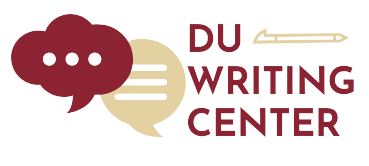by Kamila Kinyon
This Winter, we will continue publishing a series of spotlight articles about multilingual students at DU. These articles are based on interviews that Kamila Kinyon conducted about students’ memories of becoming multilingual, their connection to their heritage language, and their experiences at DU. This project is funded by a 4D Infusion Grant awarded for 2022-23 to Juli Parrish and Kamila Kinyon. We welcome this opportunity to celebrate DU’s multilingual speakers and writers.
Masod Sadipour, an international student from Iran, is working on a doctorate in bioengineering. His native language is Farsi, and he also speaks and writes in Arabic and French. As a first-generation college student whose parents and brothers neither speak nor read English, he uses Farsi to communicate with family and friends. However, when conducting scholarship, he both thinks and writes in English.
Farsi is important to Masod as a heritage language. He values it both for communication with others and for writing and reading. For example, he appreciates being able to read Iranian poetry in the original: “One thing that is really special in Iran is the poetry, for example we have amazing poets from my country like, Saadi, Hafez, Molana…There’s lots of good poetry in Farsi and it’s important to be able to read it in the original.”
For reading and conducting research in bioengineering, by contrast, English has been Masod’s dominant language. Masod has already published a number of articles in prestigious journals. When conducting research, he relies on English language scholarship. By becoming immersed in this body of literature, he automatically thinks about research in English. When composing articles for publication, Masod finds that the hardest part are the literature reviews, since it is difficult to paraphrase scholarship written in English: “It’s challenging to paraphrase and entirely alter every aspect. For example, if there are any remaining sections, they might exhibit, for example, an 8% similarity with one paper or a 2% similarity with another.” In Iran, there are not the same concepts of plagiarism as in the United States, and paraphrasing published work is thus not emphasized. When writing articles, Masod finds that the methods, results, and discussion sections are more intuitive to write. He notes that writing well in English takes extensive practice even for students and professors who have lived in the United States for a long time.
Regarding his experiences as an international student, Masod remarks that he finds American culture refreshing in its level of informality. He appreciates being able to address professors by their first names, a contrast to the more formal forms of address typical in Iran. He generally finds that interactions within American university settings tend to be more stress free than in Iran: “Here in the United States we have the freedom to speak…I really like that you can be in touch with your professors or with anyone without stress…if I want to go and talk with my supervisor, I just go to his office and knock…to talk about the project.”
Masod has had predominantly positive experiences as an international student. However, one recommendation that he has for professors is to realize that international students make up an increasingly large part of the student population. It is therefore important to consider speaking a little slower when delivering lectures and to give international students extra time: “For exams, international students and American students have the same time. I think it’s better to consider that international students need to translate…and it takes more time than a student who is from the United States.”
Overall, Masod praises support for the international student community at DU: “I congratulate international students for speaking in both their native language and English and express my gratitude to the University of Denver for all the support that is provided for international students.” Masod feels that living in the United States provides many opportunities: “One of the things that people say about United States is United States is a land of opportunities. There’s not any boundaries that you say, OK, I cannot do that, I cannot do this. Anything is possible.”

